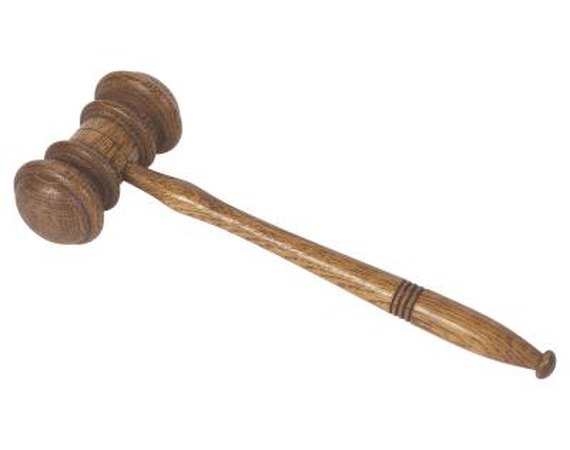
Many individuals entering college apply for student loans to help with tuition costs. If your child receives student loans, he must repay them after his education is complete. If he isn't able to make his payments, the lender may send the loan to a collection agency until your child pays the debt.
Loan Types
The type of loan your child obtains will determine the consequences of defaulting on the loan. Student loan types include Federal Family Education Loans, Direct Loans and Federal Perkins Loans. Federal Family Education Loans include Federal Stafford Loans, Federal PLUS Loans and Federal Consolidation Loans. Direct Loans include Federal Stafford Loans, Federal PLUS Loans and Federal Consolidation Loans that come through the William D. Ford Direct Loan Program. Some students may also obtain student loans from private lenders.
Default
Your child is primarily responsible for repaying all student loans other than a PLUS loan, which you must repay. If you or your child defaults on a Federal Family Education Loan or a Direct Loan, the school will send the loan to collections. If your child defaults on a Federal Perkins Loan, the school may send the loan to collections or attempt to collect the debt itself. If your child defaults on a private loan, the lender will send the loan to collections or attempt to obtain a judgment.
Collections
When a non-PLUS government-sponsored loan is in default, the school or collection agency may intercept your child's tax refunds. It may also garnish up to 15 percent of your child's monthly wages. If your child receives benefits from Social Security, such as Social Security retirement or disability, the school or collection agency may intercept them. Finally, the school or collection agency may sue your child for the unpaid debt. When a private loan is in default, the lender or collection agency may garnish your child's wages, but it can't intercept tax refunds. Government-sponsored lenders can garnish your child's wages without going to court, but lenders of private student loans must obtain a judgment and writ of execution.
Parents' Responsibilities
If you obtained a PLUS loan for your child, you are responsible for making the repayments. If you default on a PLUS student loan, the collection agency will take action against you instead of your child. All other types of loans are your child's responsibility, unless you co-signed for the debt. If you co-signed and your child fails to make the repayments, the lender will expect you to pay off the debt.






0 comments:
Post a Comment